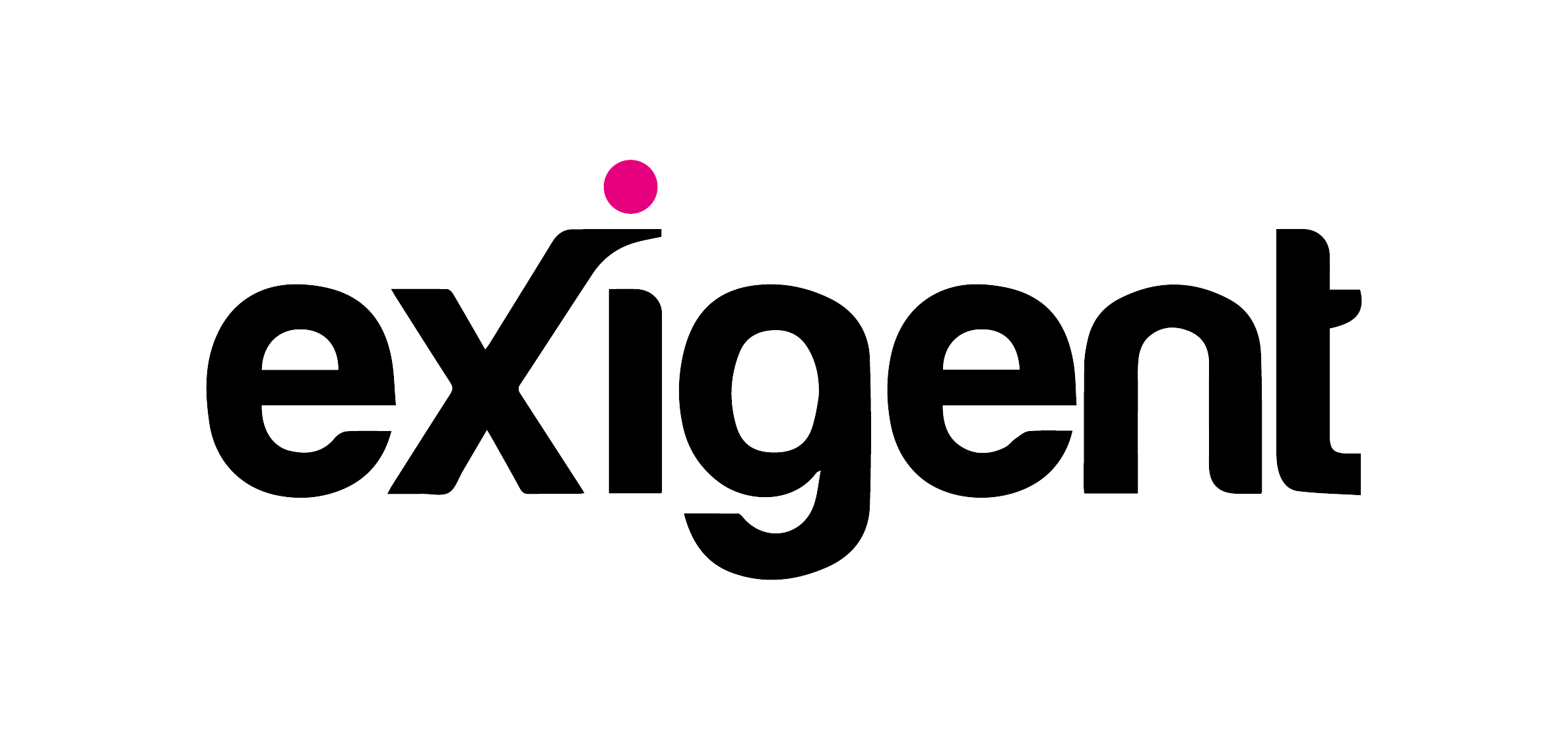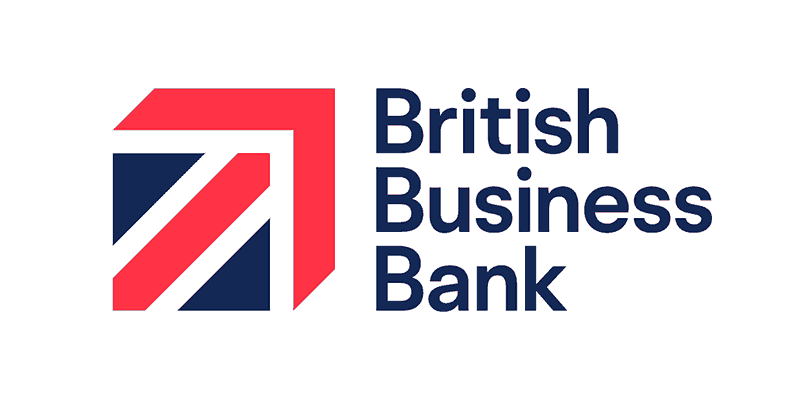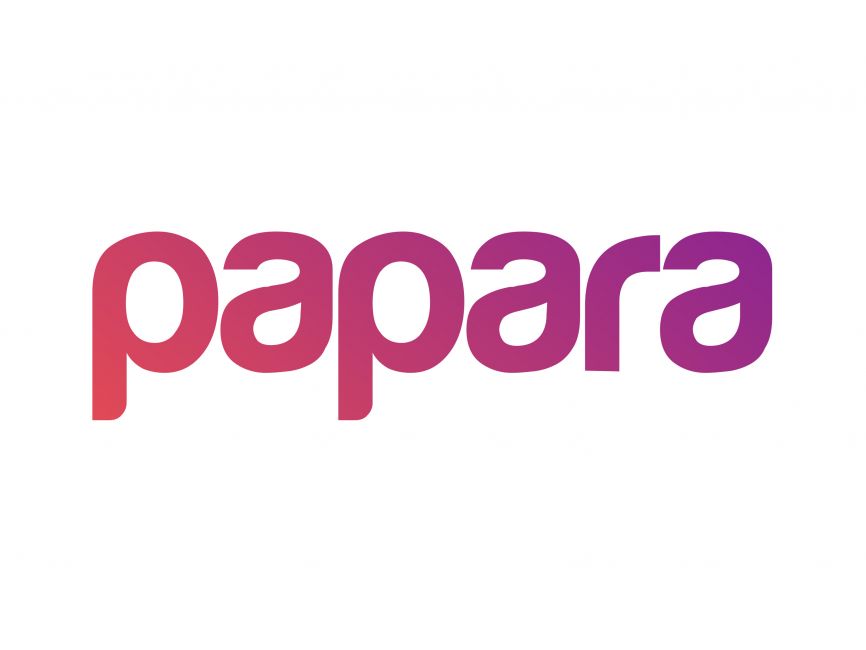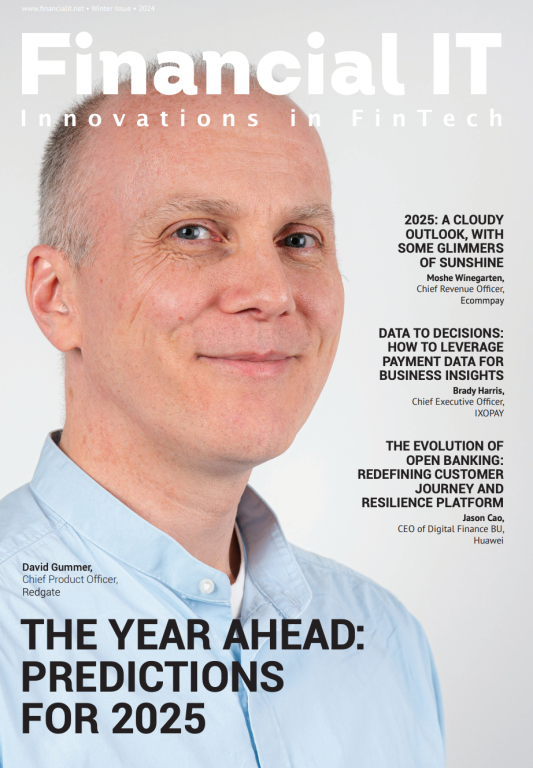Published
- 09:00 am

Flutterwave honored for achievements in Payments Processing
CB Insights today named Flutterwave in the fourth annual Fintech 250, a prestigious list of emerging private companies working on groundbreaking financial technology. This year’s list was unveiled on stage at CB Insights’ Future of Fintech conference in New York City.
This is the fourth class of the Fintech 250, and it’s also the most international, representing 26 countries. These 250 fintech startups are attacking an incredibly diverse array of financial services opportunities across 19 sectors, including digital banking, insurance, payroll, retail investing, and more,” said CB Insights CEO Anand Sanwal. “After being named to the CB Insights Fintech 250 last year, the 2020 class saw 17 companies go public and 25 get acquired. They also went on to raise over $25B in additional financing and forged more than 380 new partnerships after being recognized. The Fintech 250 has a history of spotlighting the very best fintech companies, and this year is no different. We're excited to see how these fintech startups disrupt and transform financial services in the years ahead."
Olugbenga ‘GB’ Agboola, Founder and CEO of Flutterwave, said: “We are thrilled to feature in such a reputable global list and to represent African fintech among exciting startups from all over the world. When Flutterwave was founded in 2016, the payments landscape in Africa was highly fragmented so we were aiming to build a platform that simplified payments for everyone. Now we have technology reach in 34 countries and serving over 300,000 businesses. Our mission is to take more businesses in Africa to the world, and at the same time continue to bring more of the world to Africa.”
Through an evidence-based approach, the CB Insights Intelligence Unit selected the Fintech 250 from a pool of over 17,000 companies, including applicants and nominees.They were chosen based on several factors, including data submitted by the companies, company business models and momentum in the market, and Mosaic scores, CB Insights’ proprietary algorithm that measures the overall health and growth potential of private companies.
Flutterwave was founded with the mission to create endless possibilities by simplifying payments for customers and businesses in Africa and the emerging markets. It enables its customers to build customisable payment applications through its APIs. Between 2018 and 2020 the company demonstrated exceptional revenue growth of 226% CAGR. In 2021 the company announced its USD 170m Series C round, which valued Flutterwave at more than USD 1billion. The company is rapidly growing through partnerships. In 2021 Flutterwave announced its partnership with Paypal enabling PayPal customers globally to pay African merchants in the continent through Flutterwave’s platform. Since then Flutterwave has announced several partnerships with telecommunications companies— Airtel Africa and MTN, UK payments platform Currencycloud, US payments company Discover amongst others.
Fintech 250 2021: Investment Highlights
- Unicorns: 118 of the 250 companies (47%) are valued at or above $1B as of their latest funding round
- Funding trends: In 2021 year-to-date (YTD), these 250 private companies have raised $40.3B in equity funding across 275 deals (as of 9/14/21)
- Mega-rounds: Since 2020, there have been 178 mega-round ($100M+) equity investments to this year’s Fintech 250, with 138 of them in 2021 YTD
- Global representation: 36% of the 2021 Fintech 250 are based outside the US. After the US, the UK is home to the most Fintech 250 companies (25), followed by India (12). This year’s winners are based in 26 countries, including France, Brazil, Germany, Indonesia, and Nigeria.
Related News
- 07:00 am

Susannah Streeter, senior investment and markets analyst, Hargreaves Lansdown
‘’The anecdotes from truckers, turkey farmers, builders and bosses about escalating problems in the supply chain are far from isolated cases. Rising costs hitting industries across the board are backed up in the latest large scale survey from the ONS. The Business Insights research shows that almost a third of businesses (29%) questioned reported that the price of materials, goods and services purchased over the last fortnight had increased by more than normal price fluctuations.
The situation is particularly acute in the construction industry, given that more than half of firms surveyed said prices had increased higher than usual levels over the last two weeks. Costs of materials like bricks, timber and steel were already rising before this week’s latest spike in gas prices, with companies like British Steel hiking costs per tonne by £30 last week because of escalating energy and haulage costs.
There are increasingly concerns that the UK is being caught in an inflationary spiral, with little end in sight for soaring prices. President Putin may have promised to plug some shortfalls in the supply of gas, but the lack of LNG storage facilities, amid high demand from Asia and warnings of a cold winter to come, are likely to see further price spikes.
The army may have put boots on the grounds of forecourts to ease the current fuel crisis, but industries elsewhere are still feeling the pain from the shortage of HGV drivers. Importing has turned from a headache into a migraine, with the number of companies reporting to the ONS that the lack of hauliers or logistics equipment was a challenge, doubling in September (22%) compared to April (11%).
Although short-term visas are now being offered to try and lure overseas workers to fill seats in lorry cabs and staff poultry processing plants, it seems that the government still has its ear plugs firmly in when it comes to the increasingly desperate pleas from other sectors.’’
Related News
- 03:00 am

Exizent, the Glasgow-based technology firm whose innovative platform is transforming bereavement by connecting legal services firms with banks and the wider financial services community, has announced the exciting appointment of Graeme Jones as a Senior Adviser to the Board.
Jones brings invaluable insight as a champion of the Scottish financial services industry, with decades of senior management experience within some of the UK’s leading financial institutions and extensive strategic experience in FCA regulated businesses. Until December 2020 he was Chief Executive of Scottish Financial Enterprise (SFE), the representative body for Scotland's financial services industry. During his time at SFE he made a substantial impact promoting awareness of and support for financial services companies with a presence in Scotland; Scotland being second only to London in the UK. One of Graeme’s key initiatives whilst at SFE was as a key mover in the creation of FinTech Scotland, widely seen internationally as a benchmark cluster of financial services technology innovation.
Jones has previously worked for some of the UK’s largest financial services businesses, mostly in marketing and sales roles. Prior to joining SFE he was Senior Partner (Banking and Financial Services) at Experian plc, and has also held roles including Head of Distribution at insurance giant Aviva, Head of Regulated Sales at RBS Group, and Senior Manager of Strategy and Operations at Standard Life.
Since retiring from full-time CEO of SFE Jones has been working with the Institute and Faculty of Actuaries (IFoA) as their UK Strategic Relationship Adviser. He is a graduate of Aberdeen University, an Associate of the Chartered Insurance Institute and a Chartered Insurer.
Commenting on his appointment, Graeme Jones said: “Exizent is a shining example of an enterprising Scottish business revolutionising probate domain - a space in clear need of innovation. Even this early in its journey, Exizent has demonstrated the value of industry collaboration and the benefits of being a purpose-focussed fintech. Its potential to transform the bereavement landscape has benefits for individuals, the legal services sector and of course financial services companies. I’m thrilled to be joining to support that ambition.”
Aleks Tomczyk, Co-Founder and COO, said: “Exizent was founded on the principle that we are here to solve problems for everyone involved in the bereavement process, including the financial services community. Graeme has a unique understanding of the pressing issues impacting the industry and representing these interests at the highest level. We’re thrilled he’s bringing that insight to the Board and the Exizent team.”
Exizent is the first ever platform that connects data, services and the network of people involved when someone passes away. The company’s mission is to reduce uncertainty, increase speed and make the process far simpler. The company was founded by former financial services veteran Nick Cousins and transformation and technology leader Aleks Tomczyk. The business successfully raised significant seven-figure funding from several investors including FNZ, the global platform-as-a-service firm which reached unicorn status in 2018.
Related News
- 02:00 am

Trading in the international foreign exchange market is a popular niche where hundreds and hundreds of large companies are involved. Each user can become successful here, but do not forget about the significant risks. According to statistics, only 17% of brokers are successful. It is difficult to gain popularity and leading positions in this segment. And many platforms take years to become Forex prime brokers.
However, failures are often associated with typical mistakes made at the initial stage. Therefore, it is important to know how to start a crypto exchange as efficiently as possible. How to avoid key mistakes and get results? It's simple - you need to know the theory and be able to put it into practice. The information in this article will be helpful for those who wish to create a crypto exchange.
First Steps to Start A Crypto Exchange
Before you start acting, you need to understand exactly how to create a cryptocurrency exchange. The best way is to create a concrete and structured guide. Several important stages should be noted.
• Creation of a company and obtaining all necessary licenses. Countries like Malaysia, Belize, Grenadine Islands (lightly regulated), Marshall Islands (unregulated), UK, or Cyprus (regulated) are great for new companies that decide to start a cryptocurrency exchange. Analyze the audience and create a portrait of the client to make the right choice.
• Creation of a resource. It is important to make the site user-friendly, understandable, and secure. Analyze the basic needs of traders and competitors' pages. Remember that the platform should work on stationary and mobile devices, be user-friendly, and be well optimized.
• Install high-quality software that meets modern requirements and customer desires. Start-up companies ask the question - “how to start a forex business”. This is possible with quality software. The most popular options are the MT4 and MT5 platforms. According to statistics, 2/3 of brokers choose these options.
In addition to the main issues, you need to pay attention to minor nuances before creating a cryptocurrency exchange. For example, you should pay attention to the creation of call centers for the support service, the establishment of cooperation with reliable payment systems, etc.
Most white label FX brokers follow these steps and these guidelines. However, you should also be prepared for force majeure situations. But this will only allow you to become stronger and find the right path to success.
A Few Useful Tips for Creating a Crypto Exchange
1. Budget planning. A professional broker has financial assets in case of contingencies.
2. Eliminate unnecessary costs. The cost of MT4 or MT5 platforms varies between 100 and 200 thousand dollars. At the same time, white label crypto exchange software allows you to save up to 70%.
3. Make progress every day. Getting to the top is not as difficult as staying on top of it. A high-quality liquidity provider tries to offer customers new options and opportunities: it accepts bitcoin payments, introduces new trading tools, etc.
4. Organize a professional support service to help new clients avoid mistakes in the first stages. This will help to gain popularity and gain a good reputation.
The B2Bbroker is an excellent crypto payment solution and is ready to help new players become successful in this segment. The company has 9 offices in different countries of the world and more than 4 hundred institutional clients. The platform offers 18 products available to beginners. Moreover, they can get ready-made solutions and create a high-quality white label cryptocurrency exchange.
Moreover, B2Bbroker is trying to improve its work and is constantly introducing new, more convenient, and high-quality technologies. This allows you to raise your business level to a new level. You can learn from professionals and get a clear answer to the question of how to start a cryptocurrency business.
Related News

Emmanuel Babalola
director for Africa at Binance at Bundle
The uptake of cryptocurrency and blockchain has been steadily growing over the past few years, but on the continent of Africa the proliferation of crypto trading has proved to be a lifeline for mil see more
- 06:00 am

Trafigura Pte Ltd (“Trafigura”), one of the world’s largest physical commodity trading companies, and Circulor, the leading provider of supply chain provenance and emissions tracking services, have today signed a Master Services Agreement to provide traceability and CO2 tracking for Trafigura’s nickel and cobalt trading division.
Under the agreement, Trafigura and Circulor will develop an innovative programme to track dynamically and attribute CO2 emissions throughout Trafigura’s nickel and cobalt supply chains for customers, in particular electric vehicle manufacturers.
Separately, Trafigura and Circulor are working together to support Trafigura’s responsible sourcing and traceability programme. Circulor will play a critical role in supporting the physical tracking and tracing of material, as well as the communication of ESG data relevant to the application and integration of, for example, ‘OECD Due Diligence Guidance’ and the ‘UN Guiding Principles on Business and Human Rights’ to its value chain.
The objective for both projects is to work with a range of upstream producers and downstream receivers progressively to integrate and communicate responsible sourcing due diligence and CO2 tracking data into their respective value chains via Circulor’s proven Blockchain traceability platform.
These projects complement the work of the Finnish Minerals Group (FMG) and Circulor at the Terrafame nickel and cobalt mine in Finland, in which Trafigura’s Galena Asset Management is a minority shareholder, to advance the industrial deployment of traceability and emissions tracking for FMG, its portfolio companies and its automotive sector customers.
Circulor, which offers a comprehensive and mature Blockchain solution, first conducted a pilot in 2018 on the tracing of tantalum from Rwanda in partnership with the Rwandan Mining, Petroleum and Gas Board. Circulor’s portfolio of clients include nickel and cobalt producers such as BHP and FMG, service providers such as SGS and automotive manufacturers including Volvo Cars, Daimler, Jaguar Land Rover and Polestar.
Jeremy Weir, Trafigura’s Executive Chairman and CEO, said: “As a key supplier of the vital commodities our customers need, Trafigura has invested significantly in developing tools to identify and mitigate social and human rights risks and environmental impacts, including carbon emissions, in global commodity supply chains.
“Circulor’s offering is tried-and-tested and their expertise and market reach are internationally respected. Today’s agreement is an important next step in improving transparency in commodity markets, and will enable us to offer our customers responsibly-sourced commodities, with a clearly-defined carbon specification.”
Douglas Johnson-Poensgen, Founder and CEO of Circulor, said: “Our mission is to bring greater transparency to the most complex industrial supply chains, in order to prevent the exploitation of people and planet. By working with the world’s pre-eminent metals trader at this scale, we can together establish a new benchmark for responsible and sustainably sourced battery materials.
“There are very real benefits to this work, including assurance of responsible supply, understanding and clarity of CO2 emissions at different points in supply chains, and the provision of ESG data. This agreement paves the way for a future in which we help Trafigura excel in meeting its ambitions.”
Related News
- 05:00 am

Citi joins Mastercard’s City Possible™ network to transform the dialogue around government services and enable local governments to engage their residents more simply, inclusively, and cost effectively
Mastercard and Citi today announced a new partnership to support local residents and small businesses through greater public-private sector collaboration. Through City Possible, Mastercard’s partnership and co-creation framework for cities, the two global leaders will bring their collective resources, expertise, and integrated urban development frameworks to the City Possible network.
The partnership will initially grant City Possible network members access to “Citi Start Saving” and “City Builder by Citi” through the Mastercard City Insights Digital Marketplace. The Citi Start Saving program allows U.S. municipal and nonprofit organizations to expand access to financial services and advance economic progress in underserved and low-income communities. City Builder by Citi is a free, data-driven platform that aggregates information about community investment opportunities and includes information on 16,000+ U.S. cities, 73,000 census tracts, 485 community development projects, and 180 funds and community development entities. The new tools will provide City Possible members the ability to assess the impact of a climate or economic event to support policy and program development. The partnership will also explore ways to help city leaders develop more efficient procurement processes as well as identify avenues to support an inclusive recovery through joint disbursement solutions.
Since its inception, City Possible has facilitated a framework where members can draw on the collective expertise and resources of all stakeholders in order to replicate innovative solutions that address urban challenges. City Possible works to foster collaboration and co-creation, drive inclusive economic development, and build more resilient communities.
“Cities need to think about how to adapt to a digital world in a way that leverages technology to bring more people into the digital economy,” commented Miguel Gamino, Executive Vice President, Enterprise Partnerships and Head of Global Cities and City Possible at Mastercard. “Partners like Citi allow us to continue to expand the range of solutions we can provide to the City Possible network, which has already played an important role in helping to build more inclusive communities.”
“Technology is interconnecting cities like never before, and Citi has been focused on solutions to enhance the urban experience for citizens, government and corporations alike,” noted Andy Taylor, Managing Director, North America Public Sector Group, Citi. “Partnering with Mastercard will accelerate these endeavors and generate new thought leadership across the City Possible network.”
Today’s announcement builds on Mastercard and Citi’s longstanding partnership to provide innovative solutions to multinational corporations, financial institutions and public sector organizations across the globe. Last year, Citi also joined the Priceless Planet Coalition as a founding partner. Created by Mastercard, the coalition unite the efforts of consumers, financial institutions, merchants and cities to fight climate change through the restoration of 100 million trees over five years – together with climate science and forest restoration experts Conservation International (CI) and World Resources Institute (WRI).
Related News
- 01:00 am

· London, the South East, the North West and the East of England account for 86% of equity deals despite hosting just 55% of businesses
· Distance matters – in 82% of equity investment stakes between 2011 and 2020, the investor and company are within two hours of each other; 61% are within one hour of each other
· British Business Bank invested £943m in businesses outside of London in 2020/21
More than four in ten businesses in the UK were using external finance in 2021 but a lack of local investors means economic potential continues to be wasted across the UK’s Regions and nations. The British Business Bank’s first annual Regions and Nations Tracker, published today, reveals that regional disparities persist particularly in access to equity finance and private debt.
Core debt products including overdrafts, loans and credit cards are the most used forms of business finance in all regions and nations of the UK, but equity finance and private debt can support companies with the potential for rapid growth.
The report found London, the South East, the North West and the East of England accounted for 86% of equity investment and 69% of private debt investment despite hosting just 55% of UK businesses. By contrast, Yorkshire and the Humber accounts for just 1.5% of equity investment and 4.9% of private debt activity while hosting 7.2% of the business population. London still dominates growth finance, accounting for 62% of equity investment and 35% of private debt investment despite only having 19% of the UK’s SME population.
Investors favour short distance deals
The UK’s uneven distribution of growth finance is not driven by a lack of high growth potential business in certain areas of the country but by the presence of local investors. Investors are far more likely to invest in businesses close to their office - in 82% of equity investment stakes between 2011 and 2020, the investor and company are within two hours of each other; 61% are within one hour of each other.
The preference for short distance deals has not been impacted by the increase in remote working due to Covid-19, the data shows only a slight uptick in the mean and median travel time in 2020. In over half of investment stakes in 2020, the investor and company are within 30 minutes or less of each other, and on average within 70 minutes.
Catherine Lewis La Torre, CEO of British Business Bank, said: “The lower flows of finance in certain regions and localities reflect a population of businesses operating with fewer choices. These gaps in growth finance are undoubtedly holding back ambitious entrepreneurs and lead to wasted economic potential. This is something the British Business Bank is committed to changing.”
The British Business Bank’s commitment to address regional imbalances
The Bank remains committed to addressing regional imbalances in access to external finance. 86% of businesses supported by British Business Bank’s programmes are based outside of London.
Between 2020 and 2021, the Bank invested £943m into businesses based outside of London (exceeding its original target of £868m).
Across its Regional funds, record deployment was recorded this year principally due to a strong second half of 2020/21, providing a £357m flow of finance into regional finance markets in 2020/21.
Regional fund managers also successfully secured co-investment from other Bank-delivered programmes, such as the Future Fund, to best support local companies.
Rural business owners more pressed into injecting personal funds
Access to growth finance is particularly difficult for rural business owners who were more likely to resort to injecting personal funds into their businesses in 2020, especially in the construction sector. The report found 38% of rural construction business owners used personal funds compared to 27% of their urban counterparts.
The report argues that investors with a local presence are critical to the success of UK equity ecosystems. The data shows a clear positive correlation between equity deals per high-growth business, and the strength of the local investor base.
Uneven spread of equity finance across the UK
The report reveals a striking degree of concentration in equity activity. Taken together, the top 20 local authorities, which also include non-London hotspots such as Manchester, Bristol, Cardiff, and Newcastle upon Tyne, account for 58% of all deals since 2011.
London, Scotland and the North East of England fall within what the report calls the “self-contained” category due to the prevalence of the local investor base in equity transactions in companies within each geography. London is the most self-contained region, with 90% of equity investors in London businesses also based in London, followed by Scotland at 81% and the North East with 66%.
Related News
- 09:00 am

Compleat Software partnership with Advanced delivers ‘next-generation’ automation finance and accounting solution
Compleat Software, the Accounts Payable (AP) and Purchasing Automation software provider, today announces its partnership with Advanced, a business software and services provider.
The new partnership represents the most recent expansion of the Compleat Software partner network that will provide Advanced customers in the UK, USA, and Australia with digital invoice capture, accounts payable automation, online buying and digital procurement through Compleat Software.
Focussing primarily on services within health and care, education, public sector, enterprise, and commercial organisations, Advanced customers will be able to automate important yet time-consuming and often admin-heavy tasks that are carried out manually - reducing the risk of human error, fraud, and financial loss.
Advanced offers a tailored TruePartner program, working closely alongside external organisations, independent software vendors and resellers to support with marketing and integration services that fit specific business needs, differing from a one size fits all approach in the competitive market.
The addition of Compleat’s Advanced Spend Analytics and Supplier Category Management increases reporting to every general ledger and enhances spend visibility, allowing organisations to make better informed financial decisions and spend more time proactively driving business improvements for cost savings and success.
Speaking of the partnership, Phil Douglas, CEO at Compleat Software, said: “With Advanced’s focus on its customers' growth and success, and its ambition to ensure that it is partnering with leading solution providers, this partnership is a great fit for all involved. We are excited to see where this partnership leads, and what the future holds for our customers, our solutions, and for each other.”
Daniel Docherty, Director of Strategy at Advanced, concludes, “The integration of Compleat Software will be an excellent addition to our portfolio of solutions and the capabilities that we can deliver. At Advanced, we constantly strive to improve the range of products and services we can offer our customers and clients that will be truly transformative to their business growth and success. We’re looking forward to seeing where this partnership will take us.”
Related News
- 07:00 am

- Financial SuperApp Papara has reached ten million users, after experiencing significant growth in past year
- The milestone comes as Papara reaches its five-year anniversary in August, with an impressive 106% year-on-year growth in registered users
- The leading fintech has also increased its variety of products & services as it gears up to expand throughout into Europe
Market-leading Turkish fintech Papara today announces that it has hit the ten million customer milestone, coinciding with its fifth anniversary since being founded in August 2016. Active in a Turkish financial market that hasn’t adequately served customer needs, Papara has grown to become the largest fintech in Turkey in recent years and one of the largest in the wider region. Its mission is to level the financial playing field and leverage its digital platform to provide financial freedom across the market, and give people the chance to manage their money in the way that suits them best.
Papara is a Financial SuperApp that provides instant, free, multi-currency transfers for its users. The fintech offers consumers a one-stop shop for paying bills, trading digital currencies, and tracking their spending habits, while being able to use the Papara Card around the world to make cross-border transactions with no fees. For businesses, Papara also facilitates mass-payment, proving a corporate card that can be tailored to facilitate varying spending patterns and enables a secure check-out option for merchants. Founded in 2016, Papara has since been completely bootstrapped, with no external investment to date.
During the pandemic, Papara has grown substantially as lockdowns meant that digital banking options became more widely adopted. Papara has experienced notable growth since its inception, with a 106% year-on-year increase in registered users and active user growth of 71%. Amid such growth, Papara has continued emphasis on developing new features to enhance the customer experience such as global money transfers, spending management tools and IBAN screening. Having successfully established a leading presence within the Turkish fintech market, Papara is set to continue adding to its user base and expand into Eastern Europe.
Ahmed F. Karslı, founder and CEO of Papara comments on the achievement:
“Reaching over 10 million customers is an incredible milestone and wouldn’t have been possible without the brilliant work of our dedicated team and passionate users. We’re proud to be supporting customers of varied backgrounds to create an equal, fairer financial system. That said, this is only the beginning for us here at Papara. We have plenty of exciting initiatives and product features in the works which we’re excited to share with our users, and we look forward to welcoming our next set of ten million users to the Papara family.”









